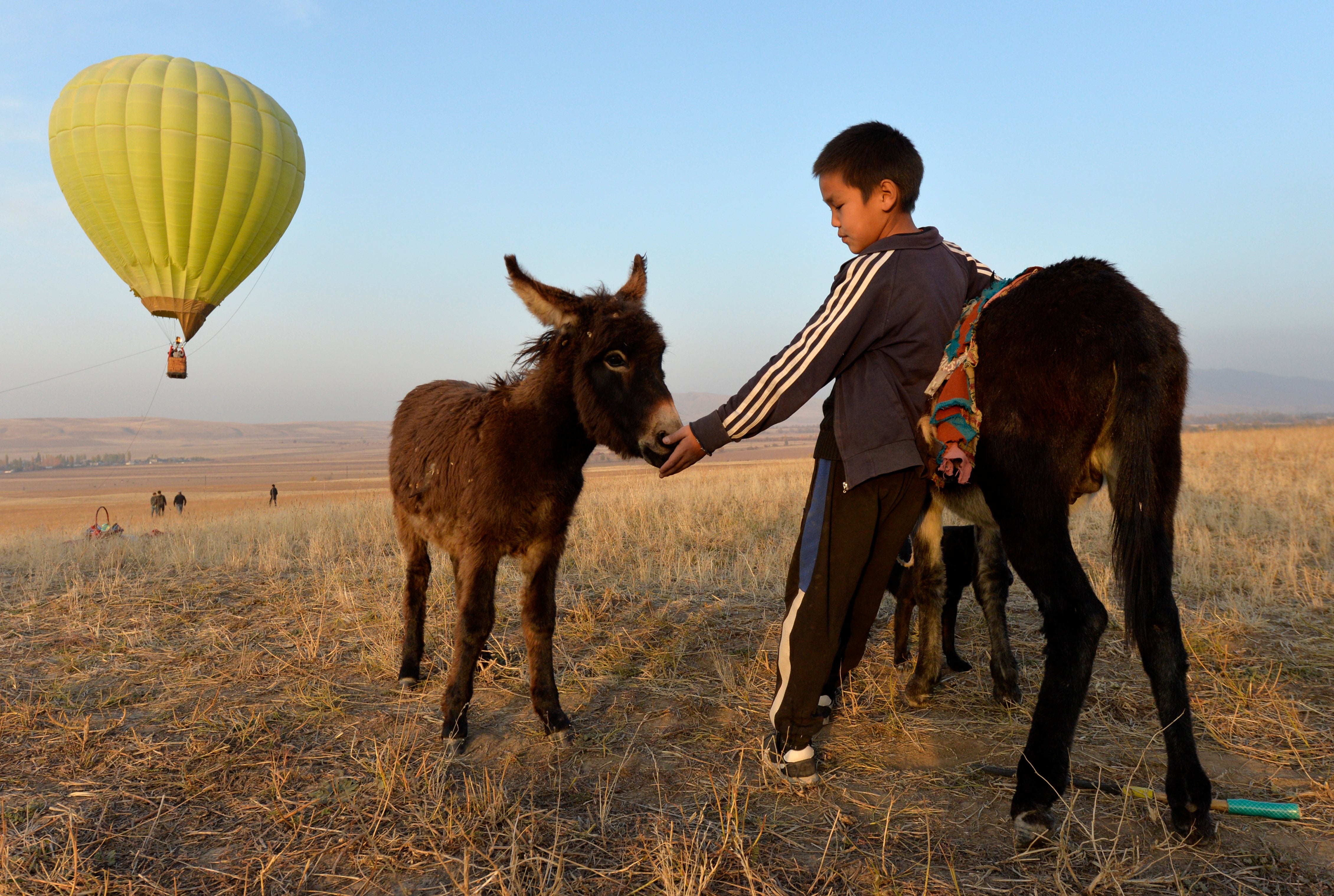AP PHOTOS: Kyrgyzstan village untouched by political unrest
The political turmoil that has gripped Kyrgyzstan hasn’t reached this quiet village in the mountains near the capital, where residents talk about the country’s feuding elites with resignation and disdain

Your support helps us to tell the story
This election is still a dead heat, according to most polls. In a fight with such wafer-thin margins, we need reporters on the ground talking to the people Trump and Harris are courting. Your support allows us to keep sending journalists to the story.
The Independent is trusted by 27 million Americans from across the entire political spectrum every month. Unlike many other quality news outlets, we choose not to lock you out of our reporting and analysis with paywalls. But quality journalism must still be paid for.
Help us keep bring these critical stories to light. Your support makes all the difference.
The political turmoil that has gripped Kyrgyzstan hasn't reached the quiet village of Tash-Bashat in the mountains near the capital, where residents talk about the country s feuding elites with resignation and disdain.
Kanat Kaliyev, a 57-year-old farmer, and his family said they have little respect for authorities, whom they see as deeply corrupt.
“Let them steal, but they at least must do something for the people,” said Kaliyev’s 27-year-old son, Azret. “But no, they try to steal it all.”
Kaliyev and other villagers cautiously welcome Sadyr Zhaparov, who became the country's caretaker leader after President Sooronbai Jeenbekov was forced to step down under pressure from protesters following the disputed Oct. 4 parliamentary election.
The developments marked the third time in 15 years that a leader of this Central Asian country on the border with China has been forced out by a popular uprising. Just like the uprisings that ousted presidents in 2005 and 2010, the latest turmoil was driven by clan rivalries that dominate politics in Kyrgyzstan, one of the poorest countries to emerge after the 1991 Soviet collapse.
The constitution bars Zhaparov, as the acting head of state, from running for president in an early vote set for January, but he said he would renounce his duties beginning next month in order to join the race.
Zhaparov’s supporters, who forced the president's resignation, were bused to the capital from his home region of Issyk-Kul. Residents of Tash-Bashat, located 20 kilometers (12 miles) southeast of the capital, didn’t take part in the turmoil.
Kaliyev said that he and other villagers would support Zhaparov as the nation’s new leader, but warned that he would be forced out too if he becomes mired in corruption like his predecessors.
Like other Tash-Bashat residents, the Kaliyev family raises sheep and cattle. They complain bitterly about the lack of state support and authorities’ failure to repair crumbling infrastructure.
“They collect taxes, but they do nothing. The government isn’t paying any attention to the citizens' needs,” said Kaliyev, adding that authorities haven't fulfilled their longtime promises to pave a road leading to the village.
Life follows its centuries-old course in the village nestled between the scenic mountains, with residents herding sheep and cows in the mountains, producing milk and milk products and taking their goods to local markets for sale.
In their free time, local men love to play Kok Boru, a traditional game in which players on horseback maneuver with a goat's carcass and score by putting it into the opponents' goal.
Subscribe to Independent Premium to bookmark this article
Want to bookmark your favourite articles and stories to read or reference later? Start your Independent Premium subscription today.